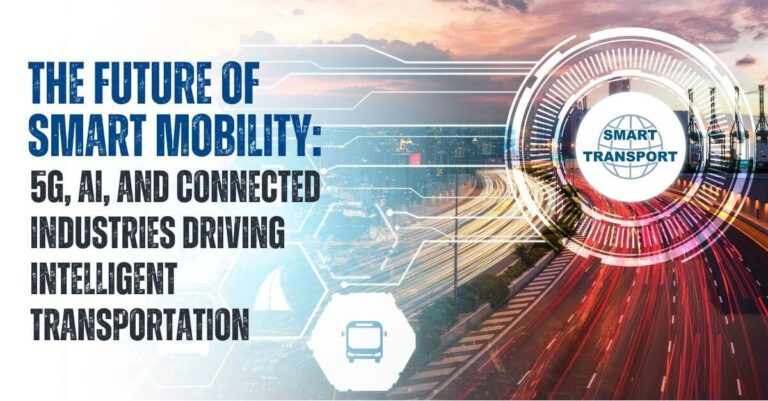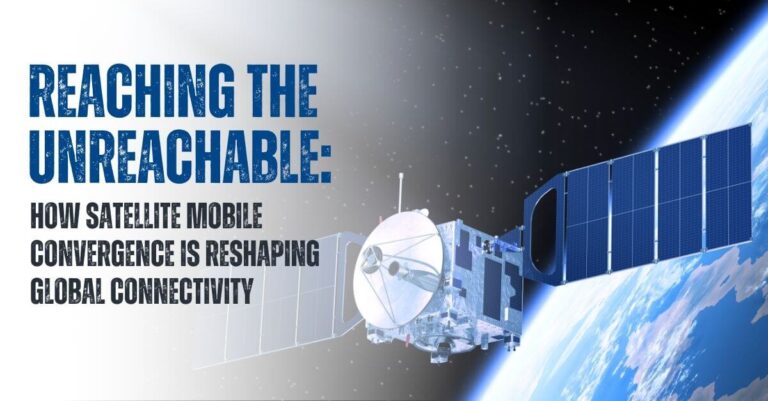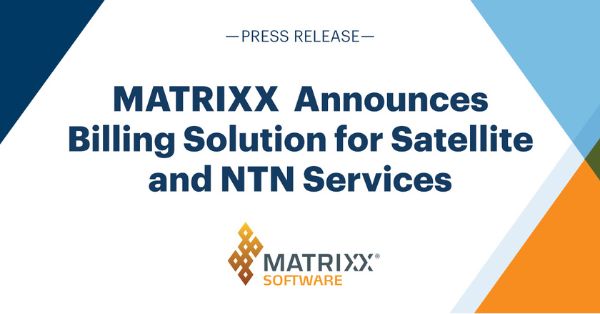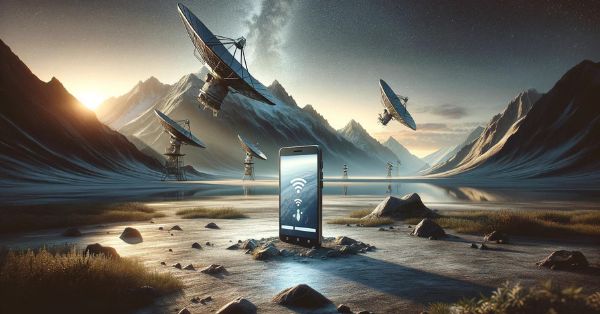Viasat, Inc., a global leader in satellite communications, today announced it has successfully demonstrated direct-to-device (D2D) satellite connectivity in the Kingdom of Saudi Arabia for the first time, in conjunction with its ecosystem partners.
Viasat successfully sent satellite-enabled two-way messages and SoS messages for attendees at this week’s ‘Connecting the World from the Skies’ event, hosted by the Communications, Space & Technology Commission (CST) of the Kingdom of Saudi Arabia and the International Telecommunication Union (ITU), in Riyadh.
The tests used a commercial Android smartphone enabled for non-terrestrial network (NTN) connectivity with the Bullitt over-the-top messaging application. The messages were sent over the company’s highly reliable L-band spacecraft which orbits above the Indian Ocean and were enabled by 3GPP standards-based NTN service infrastructure installed in Viasat’s gateways by Skylo, a Viasat ecosystem partner.
D2D is an emerging technology which allows everyday devices – like mobile phones, cars or industrial machinery – to connect seamlessly to both terrestrial and satellite connectivity without the need for additional dedicated hardware. The technology follows new global mobile 3GPP release 17 standards, which are being adopted by satellite operators, mobile network operators, handset and chipset manufacturers.
The demonstration was enabled by Viasat’s highly reliable L-band satellite capabilities, with the tests showing satellite to cell phone connectivity feasibility across the region. Importantly, the company’s approach of using already-licensed and dedicated satellite spectrum will enable it to work with mobile network operators to provide these services in the future without sacrificing or interfering with any terrestrial spectrum.
Sandeep Moorthy, Chief Technical Officer, Viasat, said: “By expanding our direct-to-device innovation to the Kingdom of Saudi Arabia, we’re showcasing the potential for D2D services in the fast-growing Gulf and Asia-Pacific region. D2D could help reduce barriers to connectivity in regions where terrestrial services are spotty and unavailable to help transform industries and supply chains, enable new opportunities, and to become more efficient, sustainable and safer. We’d like to thank the CST for their support in carrying out this exciting demonstration.”
About Viasat
Viasat is a global communications company that believes everyone and everything in the world can be connected. With offices in 24 countries around the world, our mission shapes how consumers, businesses, governments and militaries around the world communicate and connect. Viasat is developing the ultimate global communications network to power high-quality, reliable, secure, affordable, fast connections to positively impact people’s lives anywhere they are—on the ground, in the air or at sea, while building a sustainable future in space. In May 2023, Viasat completed its acquisition of Inmarsat, combining the teams, technologies and resources of the two companies to create a new global communications partner. Learn more at www.viasat.com, the Viasat News Room or follow us on Facebook, Instagram, LinkedIn, X or YouTube.
Copyright © 2024 Viasat, Inc. All rights reserved. Viasat, the Viasat logo and the Viasat Signal are registered trademarks in the U.S. and in other countries of Viasat, Inc. All other product or company names mentioned are used for identification purposes only and may be trademarks of their respective owners.
Forward-Looking Statements
This press release contains forward-looking statements that are subject to the safe harbors created under the Securities Act of 1933 and the Securities Exchange Act of 1934. Forward-looking statements include, among others, statements that refer to the design, features, benefits and performance of Viasat’s D2D services. Readers are cautioned that actual results could differ materially from those expressed in any forward-looking statements. Factors that could cause actual results to differ include: risks associated with the construction, launch and operation of satellites, including the effect of any anomaly, operational failure or degradation in satellite performance; network availability or satellite capacity required to scale direct-to-device services; our ability to realize the anticipated benefits of satellites and any future satellite we may construct or acquire; the effect of adverse regulatory changes (including changes affecting spectrum availability or permitted uses) on our ability to sell or deploy our products and services; changes in the way others use spectrum; our inability to access additional spectrum, use spectrum for additional purposes, and/or operate satellites at additional orbital locations; competing uses of the same spectrum or orbital locations that we utilize or seek to utilize; In addition, please refer to the risk factors contained in our SEC filings available at www.sec.gov, including our most recent Annual Report on Form 10-K and Quarterly Reports on Form 10-Q. Readers are cautioned not to place undue reliance on any forward-looking statements, which speak only as of the date on which they are made. We undertake no obligation to update or revise any forward-looking statements for any reason.
SOURCE Viasat, Inc: Read More at: https://www.prnewswire.com/news-releases/direct-to-device-satellite-messaging-demonstrated-for-first-time-in-the-kingdom-of-saudi-arabia-302317425.html






























